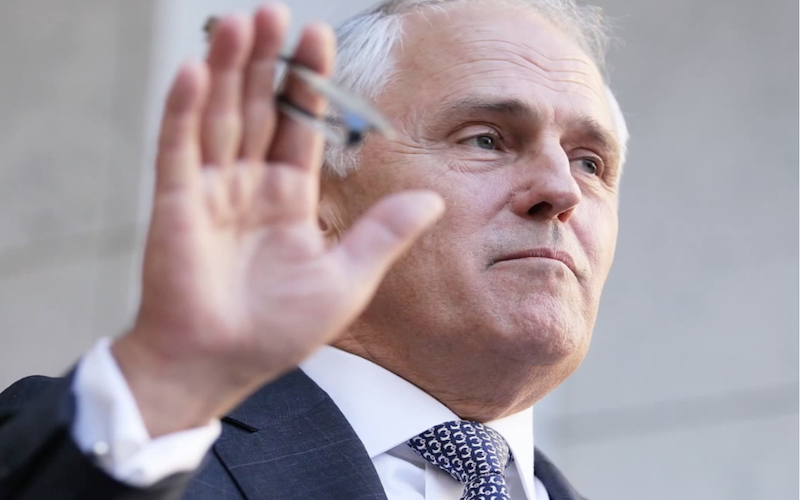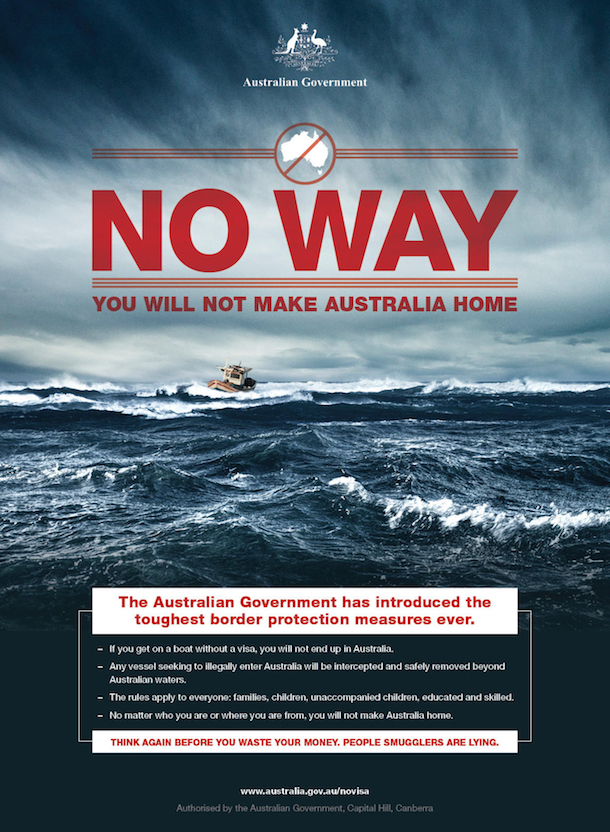
Nauru, Refugees and the Torture Complex
Two items of interest have tickled the airwaves and triggered some commentary over the last few days. The first was an ABC Four Corners program covering the fate of refugees in the detention facility on Nauru, known euphemistically as a “processing centre” costing $35.3 million a year to the Australian tax payer.
The Four Corners program was, in turn, informed by a significant Amnesty International report, aptly titled “Island of Despair,” which was released on Monday night. That report examined the rather ghoulish extent the Australian government, with its Nauru satraps, has been going about the business of “processing” boat arrivals.
In the sobering words of the report, Australia’s government had furthered “a policy to deter people arriving by boat” calculated to inflict “intolerable cruelty and the destruction of the physical and mental integrity of hundreds of children, men and children,” an approach “chosen as a tool of government policy.”
As the author and research director for Amnesty, Anna Neistat, noted, attendance by refugee children in local schools was poor for one obvious, abysmal point: “No matter how horrible the detention was – and the conditions in detention were – quite a few families and children themselves told me that now they’re in the community, they feel less safe because they’re subjected to attacks by the local population.”
Material had also been supplied by the contractor, Broadspectrum, formerly of Transfield fame, to an Australian Senate select committee citing 67 allegations of child abuse in Nauru, 12 of which found their way to the Nauru police. The police, true to form, have dragged their feet on the issue.

Australia’s morally impervious Prime Minister, Malcolm Turnbull, remains rigidly opposed to any suggestion that Nauru has become an exemplar of torture for refugees, a continuum that stretches from the camp itself to the community that despises them. “I reject the claim totally,” claimed the prime minister in fully rehearsed Newspeak. “It is absolutely false. The Australian government’s commitment is compassionate and it’s strong.”
Turnbull, along with his counterparts in Parliament, has taken a vaccine against refugee processing on Australian shores. The vaccine operates across the board, against incriminating reports, against ghastly revelations, and, generally, against any alternative that is not purposely cruel. The point is not to save lives but make the lives of the living unbearable.
The Republic of Nauru, bought and complicit in the entire venture, decided to attack the entire premise of the investigative report, using its propaganda arm (the “media and public information” unit) to argue that the children had been “coached” and interviewed in a “stage-managed” way.
What the statement from the same unit insisted upon was the conclusiveness of appearances, the triumph of embalmed truths. What you saw was what you, without doubt, got. “[V]iewers could clearly see that the refugees were well dressed, well-groomed and healthy.” Where, went the suggestion, was the squalor, the degradation, the hostility?
A closer look at the spectacle that is Nauru’s processing facility suggests a few illusions which the propaganda preachers have been at pains to engender. The pedantic will draw upon the point that those in the facility are not technically detained, being allowed, like protected animals in an enclosed safari park, to wander around – within reason.
Nauru authorities have insisted that the children are not held in any case, being allowed to live with families in appropriately safe accommodation, close to shops and decent amenities, including a new school and the “new $27 million state-of-the-art medical facility to which refugees have unrestricted and free access.” The environment is near idyllic, free of violence, or at any rate less violent than Australia.
With insistent smugness, the statement goes on to sociologically dump on Australian conditions, a reverse psychological approach that deems Terra Australis the place of nightmares: “There are fights in Australian schools on a daily basis and there is crime in Australia. The Australian news shows acts of crime each night that are far more violent than anything Nauru has experienced.”
Having raised the Nauru wilderness to the status of a welcoming refugee utopia, the unit statement goes on to aim at the Four Corners program, which it claims “should be campaigning for no refugees to be allowed into such a violent society as Australia.”
With cruel perversion, an indigent, pseudo-colonial entity like Nauru becomes more appropriate than the funder of this grandiosely macabre vision, the Australian government. The journalists of Four Corners had refused to play along, instead falsely portraying “Nauru as an unsafe nation, which it is not.”
Nauru had, effectively, been taking up a heavy, dark man’s burden, while in the mind of its officials, a scurrilous ABC had been promoting “biased political propaganda and lies” disseminating a report that was, “From start to finish…denigrating, racist, false and pure political activism.”
While this turn of the comic absurd will make some in Canberra squeamish, disturbing the odd conscience, the points on this clownishly brutal episode are clear: the torture facility that is Nauru is here to stay, a defiant reminder that humanitarianism towards the stateless and the fleeing is a fiction advanced by those who trumpet it as they deny it.

